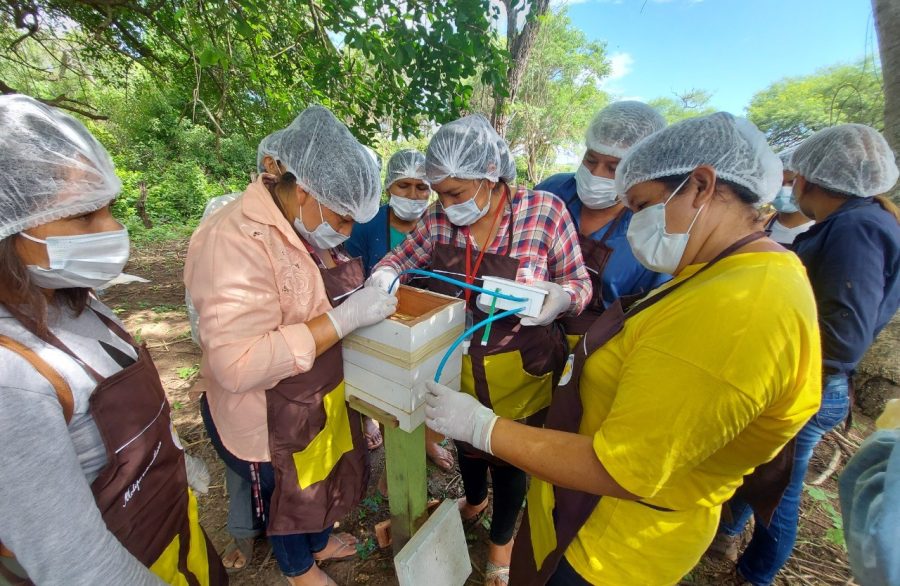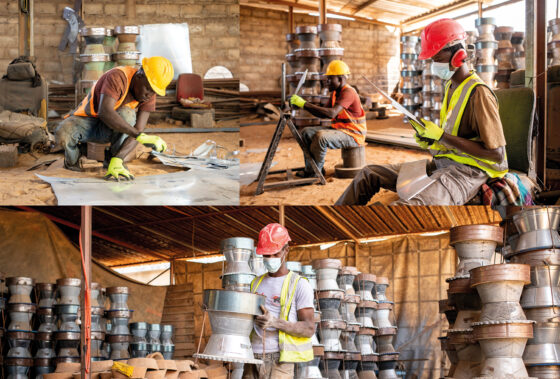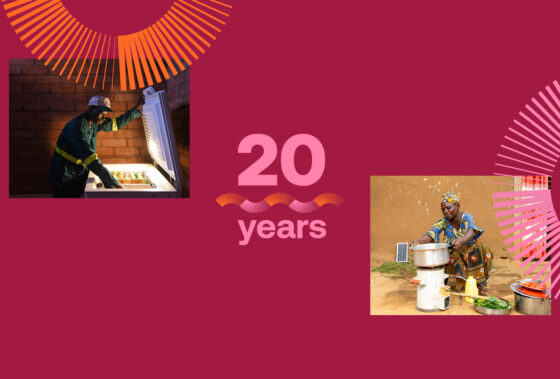Breaking Barriers: EnDev Bolivia Empowers Women Entrepreneurs

Over the past two years, EnDev Bolivia has pioneered the Fondo Energía Mujer (FEM) initiative, which is aligned with EnDev’s Women4Energy (Women Entrepreneurs for Sustainable Energy) approach. The FEM initiative has empowered women entrepreneurs and promoted inclusion, thereby driving sustainable economic and social change. This article explores the successful journey of EnDev Bolivia’s FEM initiative.
As part of its commitment to advancing gender equality, EnDev has embedded gender as a core element within its interventions, in alignment with its Gender Strategy. EnDev recognises and values the contributions of women, facilitating their meaningful participation in decision-making processes that transform their lives and communities, while ensuring equitable benefits for both men and women. To achieve these goals, EnDev employs a multi-pillar approach, which includes promoting women-led businesses, increasing women employment in green jobs, and collaborating with feminist and female-led grassroots organisations.
Advancing Gender Equality in Bolivia
Driven by its commitment to gender equality, EnDev Bolivia established the Fondo Energía Mujer (FEM) to promote women-led businesses and enhance women employment opportunities. In Bolivia, approximately 70% of people in rural areas lack access to modern energy services, with women facing even greater challenges due to gender disparities. Additionally, women encounter higher barriers to employment, with the unemployment rate of women averaging 6% higher than that of men, particularly pronounced among indigenous women. In response to these intersecting challenges, EnDev Bolivia launched the FEM initiative in 2021 to empower women entrepreneurs and improve employment prospects.
The FEM Approach: Empowering Women in the Energy Sector
FEM is an open and competitive fund designed to provide financial and technical support to rural enterprises led by women. It addresses their need for modern energy technologies, such as solar-powered machinery or other equipment for productive use (PUE). The primary goal is to enhance women’s confidence and entrepreneurial skills, enabling them to generate additional income, create employment opportunities, and reduce gender-based inequalities and stereotypes. In addition to facilitating access to technologies, FEM supports women in co-designing and adapting technologies to meet their specific needs. This underscores a key aspect of FEM: considering the women’s context and adjusting planning, design, and processes accordingly.
To access the fund, businesses undergo a competitive process wherein a committee evaluates previously prepared business plans. Only the most promising plans are selected to receive support, ensuring that resources are allocated to ventures with the greatest potential for success.
The Impact of FEM
The impact of FEM has been substantial, evident in both measurable outcomes and more subtle, personal changes. Across eleven value chains, 50 rural women entrepreneurs have been supported, leading to increased income and financial independence. Additionally, FEM has fostered a sense of self-empowerment and collectiveness among participants, highlighting its transformative influence beyond economic gains.
“We call this our second home because we come here and some women talk about their problems at home, we all unburden ourselves here. We support each other so that we can return home stronger and say: I can do it, I have to keep going. That way we feel freer.” Antonia Mendez Taseo, PROSAM
Moreover, by spotlighting women as entrepreneurs, FEM has been pivotal in dismantling gender norms within communities. Participants have noted receiving greater respect from their partners and heightened recognition for their contributions. These outcomes underscore the transformative power of initiatives like FEM, which extend far beyond economic metrics to enrich the lives and experiences of participants on a deeply personal and communal level.
"In the past, our job was the house, the family, the children, the kitchen, nothing else. We had no right to go out or to study. Now women want to get an education and learn many things."
Máxima Palacios, CADEMA
“In addition to wasting time, our old machine was also an additional expense. It burnt frequently and we had to repair or buy new ones, and we had to pay two wages. Now we have time to organize meetings at the headquarters to do a general cleaning, and we take the opportunity to make an apthapi [collective Aymara celebration in which food and knowledge are shared] and socialize.”
Maritza Quintanilla, PACHAMAMA
More information
To learn more about EnDev’s gender approach click here.
Learn about EnDev Bolivia from here.
Learn about Women Energy Fund (FEM) from here.



